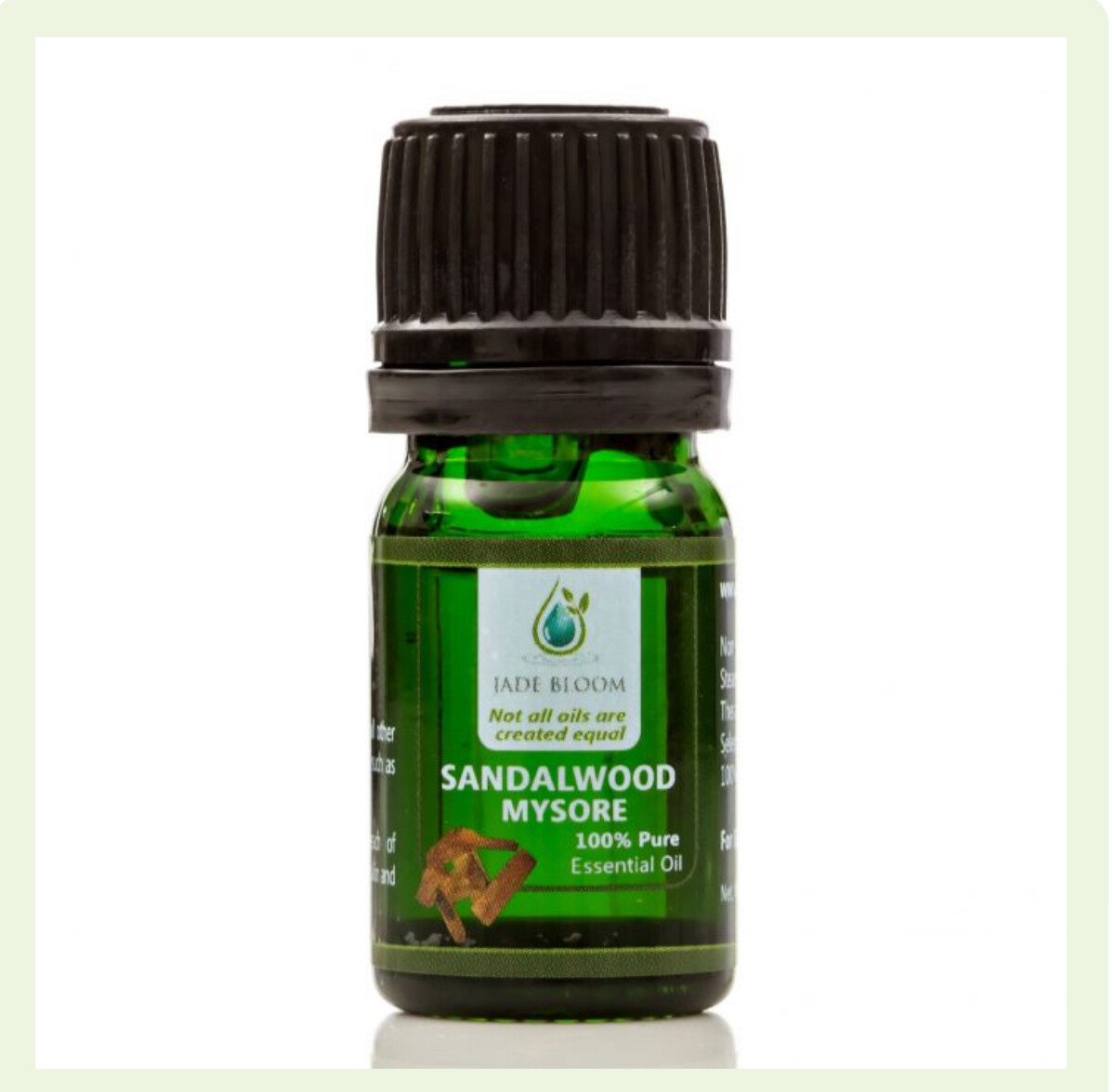Sandalwood 5ml., JB
Sandalwood (Mysore) 5ml
100% Pure Essential OIl
Botanical name: Santalum album
Plant origin: Tree, wood
Extraction method: Steam distillation
Aroma: Exotic, woody
Odor intensity: Medium
Evaporation Rate: Base note
Country of Origin: India
Sandalwood is a highly aromatic tree that grows wild and is cultivated in Australia, India, Timor, and the Sunda Islands. Sandalwood has been treasured for over 4,000 years most notably in India. It is also used in Chinese and Tibetan medicine. The Egyptians would embalm their dead with sandalwood upon mummification.
Sandalwood essential oil has demonstrated the ability to inhibit breast cancer cells and destruct prostate cancer cells, making it a valuable asset in treatment. It is known to assist with chronic asthma, bronchitis, acne, dry skin, dry cough, act as an immune stimulant, has a cleansing action on sexual organs, laryngitis, calms muscle spasms, varicose veins, hemorrhoids, neuralgia, and respiratory infections. It is also effective for combating the herpes virus. It is renown for its centering and meditative scent, making it popular in rituals and sacred settings.
Sandalwood essential oil is antiphlogistic, antiseptic, antispasmodic, aphrodisiac, astringent, diuretic, emollient, expectorant, sedative, tonic, decongestant, insecticide, anticancer, antifungal, antioxidant
Sandalwood essential oil is a unique addition to cosmetic applications, personal care formulations, soaps, perfumery, incense, and candles.
Disclaimer:
The above statements have not been evaluated by the FDA
This information is for educational purposes only, it is not intended to treat, cure, prevent or, diagnose any disease or condition. Nor is it intended to prescribe in any way. This information is for educational purposes only and may not be complete, nor may its data be accurate.
Safety precautions: Extremely potent use with care. Consult a professional reference for correct dilution ratios prior to application.
Avoid in pregnancy and lactation. Keep away from eye area. Keep out of reach of children.

